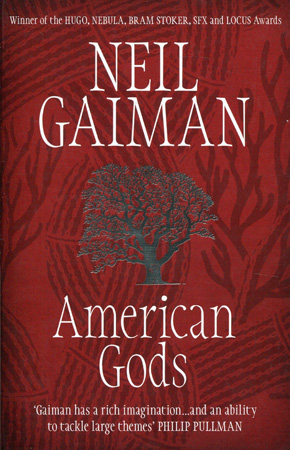


He adds humor and a British sensibility to the dialogue that prevents the Epic-with-a-capital-E descriptive passages from dragging. Neil Gaiman has won just about every literary award one can think of (Hugo, Nebula, Bram Stoker, Newberry, Carnegie, so everything short of a Pulitzer) and he’s writing about a subject he’s loved since he was a child. As he writes in his introduction, “The Norse myths are the myths of a chilly place, with long, long winter nights and endless summer days, myths of a people who did not entirely trust or even like their gods, although they respected and feared them.”

Most importantly, it makes Norse mythology make sense. Neil Gaiman’s Norse Mythology chronicles the adventures, mostly, of familiar characters: Odin, the all-father Loki, the trickster and Thor, the thunder god and original dumb jock. In particular, how I was supposed to feel about Loki, at times light-hearted and entertaining, who betrayed his family and destroyed the world? Unlike Greek mythology, there a well-defined apocalypse that pervaded every other myth, and unlike Hindu and Judeo-Christian mythology, that apocalypse involved the ultimate of triumph of evil over good. During my Elementary and Middle school years, when I voraciously consumed myths of all kinds, its moral logic never quite made sense. For me, Norse mythology has always been a hard nut to crack.


 0 kommentar(er)
0 kommentar(er)
